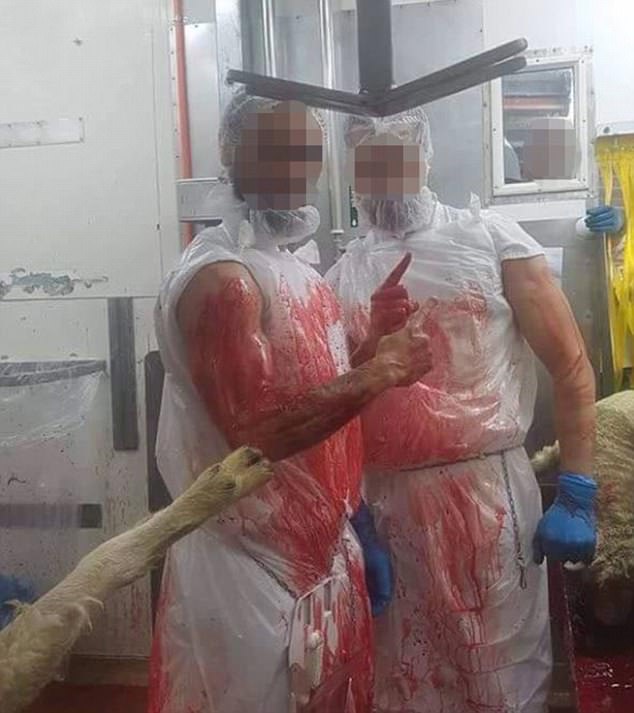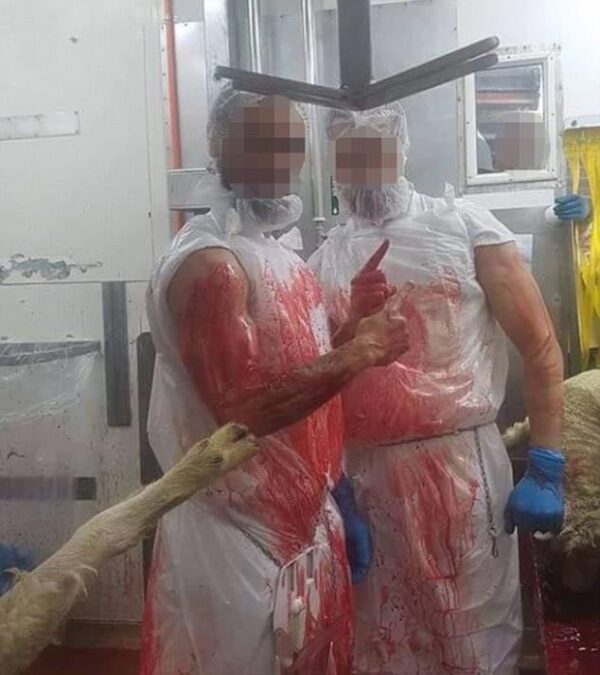This is not the first time Islamics ransom the NZ meat industry, they have been doing it from almost the beginning of halal slaughter here in NZ when they introduced the major terror networks of the period. Since the 70’s money has been raised from this enterprise and channelled to mosques that have supported terrorism and division in this country. There is nothing in the Quran requiring this.

A $3.5 billion-dollar export industry is at risk if the country does not get more halal butchers, the Meat Industry Association says.
Sirma Karapeeva, the association’s chief executive, pressed Parliament’s primary production select committee on Thursday for urgent help to bring in more migrant halal workers for the upcoming processing season.
The shortage is part of a wider labour shortage. Karapeeva said every year the industry swelled its ranks with about 500 unskilled workers to free up seasoned workers. But this year the country was short about 2000 workers, skilled and unskilled.
“What the labour shortage means for us is that plants will not be able to run at capacity and this will most likely mean that it will take longer to process stock which may cause some distress to farmers as well as some animal welfare issues.”
However, the most critical shortage was in halal butchers. The industry usually needed about 250 butchers, of which about 100 were generally New Zealanders and the rest migrants, but at the moment the industry was 50 butchers down.
“The season starts in September-October and if we lose any more halal workers, then things will become very critical,” Karapeeva said.
“We’ve advertised extensively and promote the opportunities through the Muslim communities, the mosques, our halal certifiers, and any other community group that we can reach…
“The problem for us is the Muslim community is very small, is predominantly concentrated in Auckland, and to a certain extent in Hamilton, and fewer people are attracted to a job of being a butcher and having to move into rural communities where perhaps their social networks and support systems might not be available.
“I want to stress it’s not a matter of paying more or training, it is a religious faith and aptitude matter.”
Karapeeva said battling Immigration for entry visas and extensions had been very difficult.
Of the 98 migrant halal butchers in the country, 87 would have to leave New Zealand within a year because of a stand down period and the remaining 11 would have to leave before the end of 2022.
As well as putting the halal meat industry at risk, the shortage of halal workers had the potential to lower the overall value of the red meat industry’s earnings, she said.
When the production lines were too busy, carcasses were not processed to their full value and certain co-products were not saved or matched to certain markets.
“It is frustrating that New Zealand’s second largest industry which needs such a small number of specialist workers is unable to rely on an immigration system to help fill this gap of critical worker needs.”
Karapeeva said the meat industry was also about to launch a campaign to attract New Zealanders and dispel outdated negative perceptions.
They were not necessarily looking for young people straight out of school, she said.
“It is a very challenging job not only physically, but it is confronting dealing in that sort of environment where you are disassembling a living animal, essentially. It takes a level of resilience and maturity.”
She asked the select committee to push for the development of special visa criteria for halal butchers.
“We can supply the technical training for these people when they arrive in New Zealand, we can also supply the pastoral care, the support so that they’re not left flailing in a new environment. But we cannot train them, or we cannot convert them should I say, in their religious attributes.”
In the year ended September 2020, New Zealand exported about $3.5 billion worth of halal-certified meat and edible co-products.
Halal workers must be “a sane Muslim adult” and follow a particular slaughtering technique.

